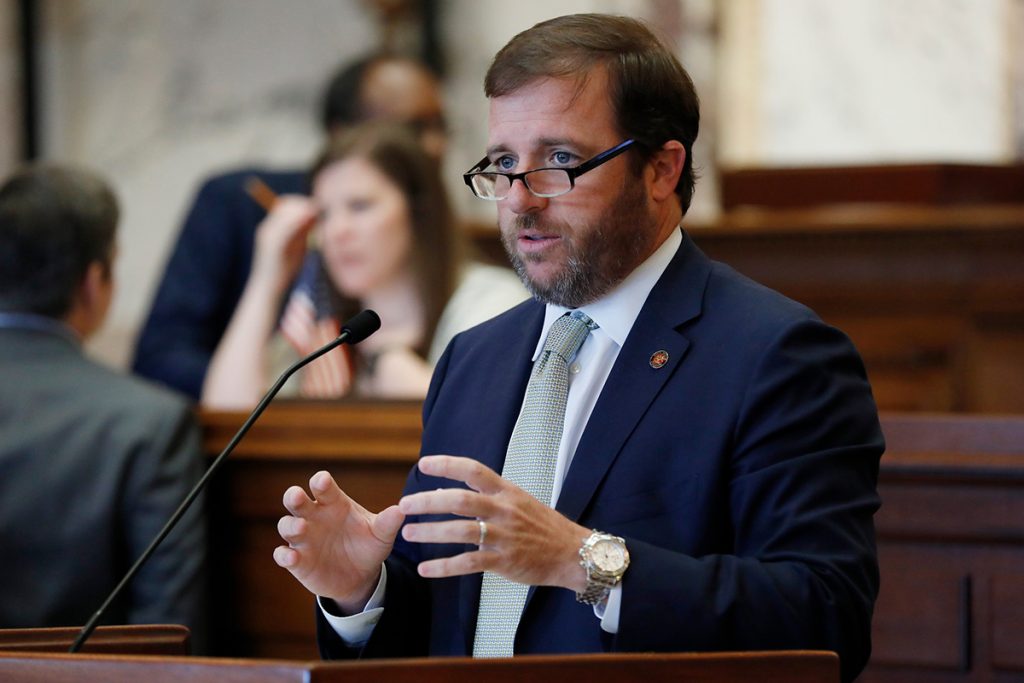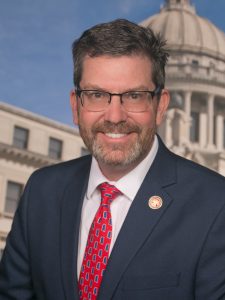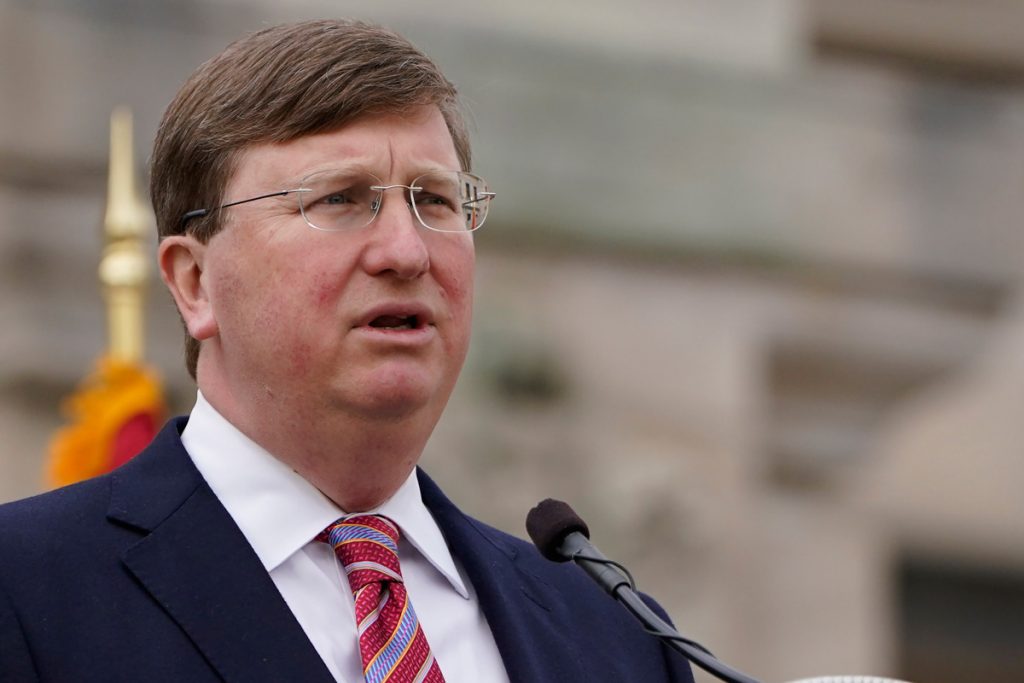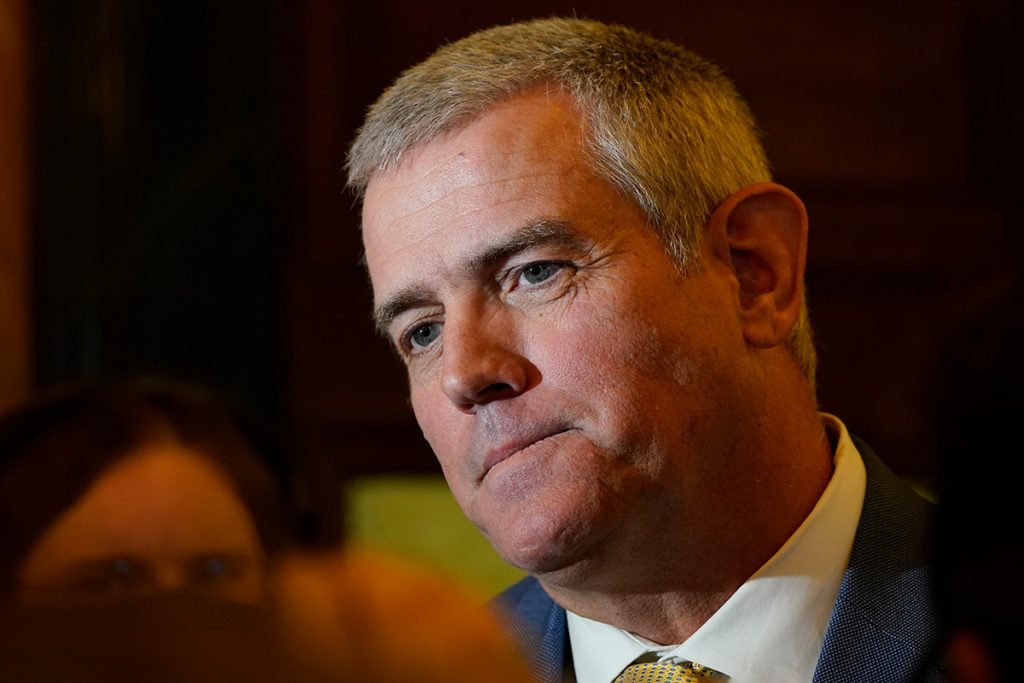House Speaker Philip Gunn, R-Clinton, has called for a hold on the spending of federal American Rescue Plan money until the Mississippi Legislature passes a bill abolishing the income tax, a shot across the bow of the Senate and its more modest reform plan only two weeks before a key deadline for many spending bills.
On Supertalk’s Paul Gallo Show this Monday, the speaker told the conservative talk-show host that Gov. Tate Reeves should call a special session before allowing the moment to pass.
“I am of the belief that if we can’t get this tax elimination done in the next two weeks,” Gunn said, “then the governor should call a special session to eliminate the income tax before we spend a dime of any other money,” further specifying that he meant “a dime of ARPA money or capital expense money.”
If Gunn uses his authority over the House to back up his words, it could throw a wrench into the works of an already overburdened session, potentially delaying the appropriation of much of the $1.8 billion in federal funds now available to lawmakers until next year—or a special session.
Sen. Josh Harkins, chairman of the Senate Finance Committee, seemed unperturbed in a March 1 interview, focusing on the bills his committee has already passed.
“We’re here working, doing what we’re supposed to be doing. We’re going to continue to work to achieve an income tax bill,” he told the Mississippi Free Press. “ … We’ve already passed several (American Rescue Plan Act) bills. We’ve passed a teacher-pay raise. We’re doing the things that we’re supposed to do.
“If they choose to kill it, I guess that’s their prerogative.”
The Devil in the Details
Gunn’s move comes between two tax plans with largely different scopes and priorities. In the House, Speaker Gunn’s own plan aims for a full repeal of state income tax, raising sales taxes and counting on continued growth to offset the significant reduction in revenue for state projects. He is the immediate past chairman of the American Legislative Exchange Commission, a national organization that supports a repeal of income taxes and writes template legislation for state lawmakers across the U.S.
The Senate plan is far more cautious than Gunn’s, with top leadership in the chamber warning that they did not expect revenue growth to continue as it has thanks to federal stimulus. Harkins previously called the federal money key to much of the revenue growth that Mississippi has seen during the pandemic.

“I don’t think anybody here is under the illusion that the normal revenues that we are receiving right now is anything short of the cocaine the federal government has us on. It’s going to drop at some point, so we took that into consideration,” Harkins said in an earlier tax hearing.
In the Supertalk interview, Gunn made it clear that he was uninterested in swallowing income tax bite by bite. “We’re a little bit disappointed in what the Senate brought forward,” Gunn said. “It does not come anywhere close to eliminating the tax. Our focus has been full elimination of the income tax without any further legislative action. We want to pass a bill that eliminates the income tax.”
Harkins was circumspect, telling this reporter that he was open to negotiation on tax issues, but that “the devil is in the details.”
“You never say never on anything,” Harkins said. “(But) we provided a plan that doesn’t raise taxes, which the governor has repeatedly said he doesn’t want to do … it’s not as aggressive as the House plan because we don’t raise a bunch of revenue to help offset some of these costs.”
‘Another Bargaining Chip’
The House speaker’s demands are a clear sign that the legislative session is headed for a contentious second act, but as of yet, it’s unclear if he will actively move to block legislation from passing through the House without significant momentum on his preferred tax plan.
Rep. Dan Eubanks, R-Walls, a member of the House Appropriations Committee, told the Mississippi Free Press in an interview today that the speaker’s comments were news to him, and that he expected they were part of an effort to press the Senate to act. “You know,” Eubanks said, “there’s a lot of games that go on between the House and the Senate when it comes to specific agendas.”
“The money’s there, and it’s going to get spent eventually,” Eubanks added. “I’ve never known Mississippi to give up free money from the federal government … I think this is just another bargaining chip.”

But legislative dealings do not always go to plan. Infighting between Mississippi’s House and Senate has historically killed some legislation otherwise likely to pass, either out of retribution or simply due to the finite time available to legislators to hash out agreements. And the Legislature has only two weeks left to shepherd spending and appropriations bills out of their second committee hearings: House bills are now in Senate committees, and vice-versa.
Already this week the Senate has been forced to engineer a last-minute save for the teacher pay raise, amending its own language into the House bill in addition to the House’s raise for teacher’s assistants. At the same time, the House let the Senate’s bill wither on the vine, all shortly before a deadline threatened to kill the prospect of teacher pay this session entirely. All this occurred over raises for Mississippi’s teachers—an agenda so uncontroversial it has been a topic of uniting discussion, campaigning and legislation for years.
Eubanks acknowledged that while Mississippi was destined to spend the American Rescue Plan funds, an extended boxing match over income tax could leave the money unspent for longer than intended.
“I think it’s a good possibility (that the money is held up), and that may be a bargaining chip to drive a special session. If that money gets held up, there’s going to be a whole lot of outcry around the state … it may be just the thing that will help motivate the governor to call a special session.”
Part of that pressure, Eubanks said, would fall on Lt. Gov. Delbert Hosemann’s shoulders as the leader of the Mississippi Senate.
“From what I hear, the lieutenant governor has not really wanted to sit down at the table and come up with some type of transformative compromise. So they talk about getting rid of the 4% and knocking 10 bucks off of people’s car tag—it isn’t transformative in anybody’s life. It’s minimal at best. … I think the speaker wants to use whatever he’s got.”
If Gunn does wish to apply pressure on Reeves and Hosemann, he has a powerful bargaining chip. Dozens of bills concerned with American Rescue Plan funds still await full legislative approval. Money is already tagged for tourism recovery, health care worker retention, critical infrastructure like water systems, and significantly more.
The majority of those bills still need Gunn’s accession to pass through House committees and eventually to the floor for a vote. On the Senate side, House bills already passed in their original chamber can progress to the governor without another round in Gunn’s hands, but only if the Senate passes them without amending them. That would effectively give the House full authority over the scope and design of the funding initiatives that do pass.
‘Just Lip Service’
One voice is missing from this discussion—that of Gov. Tate Reeves. Gunn stated in his Supertalk interview that the governor supports him in his push for full repeal, rather than the Senate’s revenue-conscious 4% bracket cut.
To hear him say it, the governor is indeed firmly in the full repeal camp, releasing statements and sound bites that show a preference for abolishing the state’s income tax, opening the floodgates rather than tinkering with brackets.
“I’m 110% supportive of eliminating the income tax because I’m 1,000% positive that putting more money in Mississippians’ pockets is the right way to grow our economy!” Reeves said at a press event last month.
But contained in Reeves’ endorsement of the income tax repeal is a somewhat uncharacteristic placidity. “I like how the House plan truly lays out a plan to eliminate the income tax,” Reeves said then. “I like the fact that the Senate plan does not raise anybody’s taxes. I believe we can do both. I believe we can eliminate the income tax without raising taxes on anybody.”

Historically, Reeves has not been afraid to take a heavy hand against a Legislature that challenges his agenda. Not two years past, he raged against the same legislative leadership for, in his words, risking the lives of Mississippians through inaction for challenging his authority over emergency COVID spending. Now, however, Reeves is playing nice with Senate leadership that seems keen to block the income tax repeal.
“I’ve been surprised how hands-off the governor seems to have been this whole session,” Eubanks said. “You know, if he truly wanted income tax reform in this state, he could be a very vocal force to try and bring that about. I feel like—and this is just me personally—that some of this is just lip service.”
Asking why the governor would act tepidly on a red-meat issue ahead of an election-year requires addressing the elephant in the room: the potential gubernatorial candidacy of one Philip Gunn. “You have to look at the (bigger) picture,” Eubanks said. “You’ve heard the rumors of the speaker possibly running for governor. I think there’s a certain amount behind the scenes at play. (Do) I want to give a potential opponent a win? (Am) I for income tax removal, but this isn’t exactly the plan I want?”
Ultimately, Eubanks said, the governor could be doing more to whip the votes for an income-tax repeal on his terms right now. “He’s not there at the Capitol trying to interact with the players and actually trying to get it to happen,” he added. “I would like to see us quit playing all these games and do something for the people of Mississippi,” Eubanks concluded.
Gov. Tate Reeves, House Speaker Philip Gunn, and Lt. Gov. Delbert Hosemann did not respond to requests for an interview.










